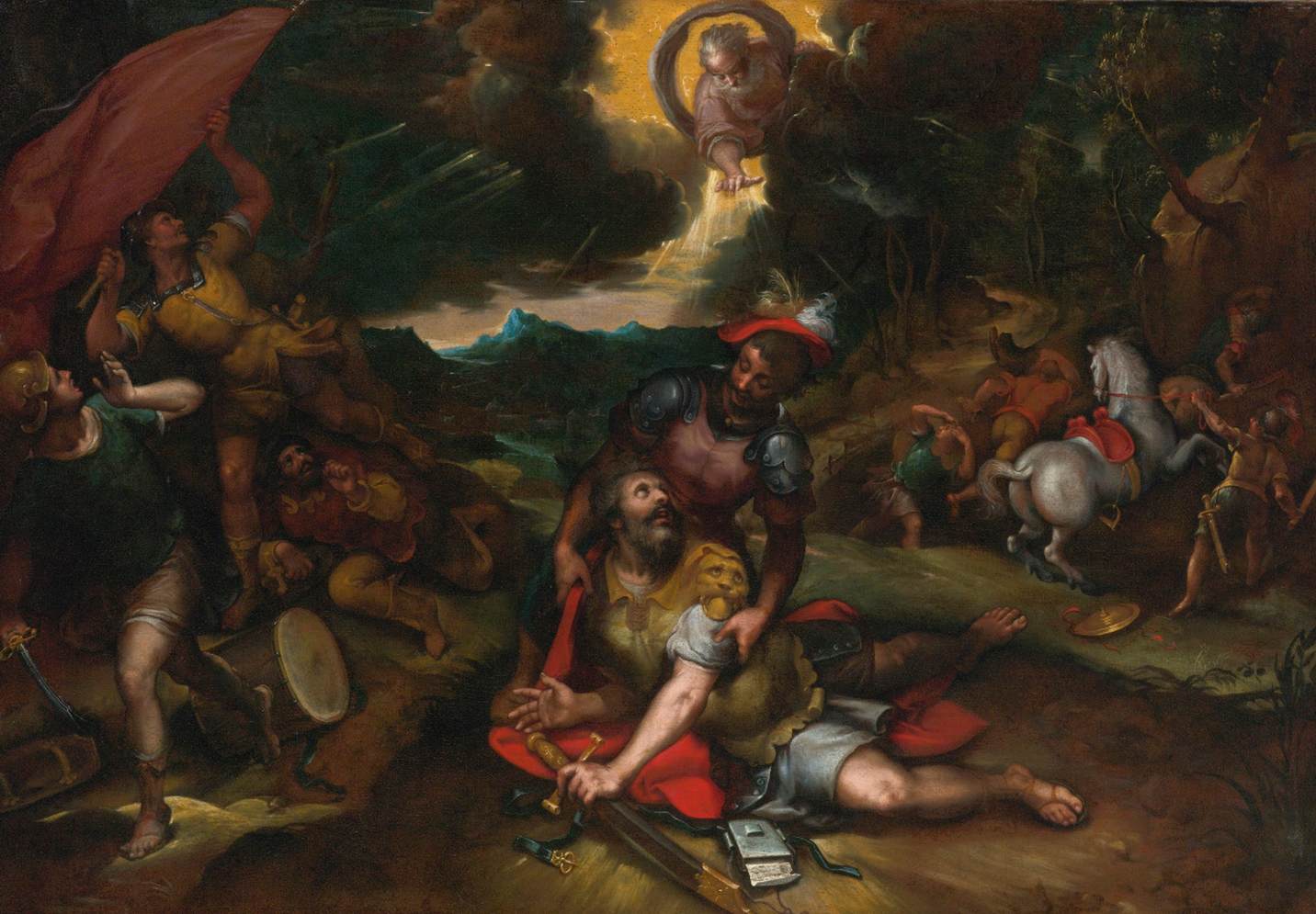Description
The painting Conversion of Saul, by artist Denys Calvaert, is an Italian Renaissance masterpiece noted for its artistic style, composition, and use of color. With an original size of 92 x 133 cm, this work represents the moment when Saul, the persecutor of Christians, becomes Saint Paul, the apostle of Jesus Christ.
Denys Calvaert's artistic style is characterized by his ability to create detailed and realistic figures. The Conversion of Saul is no exception, as the work is full of details, from facial expressions to the folds of clothing. In addition, the artist uses the chiaroscuro technique to give depth and volume to the figures.
The composition of the work is also impressive. The main focus of the painting is the figure of Saul, who is in the center of the scene and is surrounded by a divine light. The other characters, including the accompanying soldiers, are arranged around him, creating a sense of movement and dynamism in the work.
The use of color in the Conversion of Saul is another interesting aspect of the painting. The artist uses a palette of bright, saturated colors, including reds, blues, and yellows, to create a sense of drama and emotion in the scene. The divine light that surrounds Saul is depicted in a deep golden hue, adding an element of mysticism to the work.
The history of the painting is also fascinating. Denys Calvaert was a 16th century Italian artist who worked in Bologna and Rome. The Conversion of Saul was painted in 1590 for the church of San Giovanni in Monte in Bologna, where it still stands today. The work was commissioned by Cardinal Gabriele Paleotti, who was interested in promoting the Counter-Reformation in Italy.
In summary, Denys Calvaert's Conversion of Saul is an impressive work that stands out for its artistic style, its composition, its use of color and its history. This painting is a display of the talent and skill of the Italian Renaissance artist and remains one of the most important works in the church of San Giovanni in Monte in Bologna.

